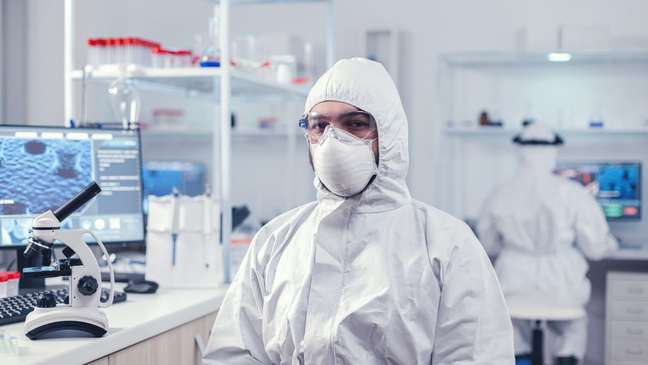Brazilians were polled about their trust in science and vaccines, and even with a reduction due to the pandemic, most still trust scientists
A survey by the National Institute of Science and Technology in Public Communication of Science and Technology (INCT-CPCT), based in Casa de Oswaldo Cruz (COC/Fiocruz) analyzed the confidence of Brazilians in science in recent months, taking into account the influences of the covid-19 pandemic and the production and distribution process of vaccines to contain the SARS-CoV-2 virus.
- Fiocruz: More than 1 million medical procedures have been held back by the covid pandemic
- WHO lists Butantan and Fiocruz among the top 15 vaccine manufacturers in the world
- What is science, the scientific method and scientific popularisation?
The study also took into account factors such as the participants’ education, financial condition, gender, and political and moral values. The results show a significant drop in the scientific confidence of the country’s inhabitants, even if the majority continues to believe in the benefits and results brought by scientists and researchers from universities and public institutions. They are still seen as honest and their work is seen as beneficial.

Scientific interviews and beliefs
To find out the opinion of the population, a sample of 2,069 people aged 16 and over were interviewed at home, in person and individually. Scientists were believed to allow the influence of political ideologies in researching the new coronavirus during the pandemic, but the part of the population who see no benefit from science for humanity it is very low, standing at 3.5%.
With a margin of error of 2.2%, the study had a 95% confidence interval. The majority of participants said they trust or trust science very much, reaching 68.9%. By way of comparison, the State of Science Index made in the United States by the company 3M, in the same year, showed a result of 90% agreement of the population with the phrase “I trust science“. Although it seems low, in comparison, the Brazilian value is considered high.
Even so, the scientists they are among the most reliable sources of information for Brazilians. At the top of the list are doctors, with 60.1% trust, followed by scientists, with 47.3% — of these, 30.6% come from universities or public research institutes, while 16, 7% work in companies. Followed by journalists, with 36.4%, and the least reliable, with just 1.5% each, are politicians and artists. The list of professionals to be considered was provided by the survey.
Participants were also asked for the names of the most remembered scientists and institutions, with 8% reporting that they know the name of at least one Brazilian scientist, with Oswaldo Cruz and Carlos Chagas in the lead. There was also a highlight for professionals active during the pandemic, such as Margareth Dacolmo, from Fiocruz, and Jaqueline Goes, from the University of São Paulo (USP), doctors remembered by the interviewees.
The institutions mentioned were the Butantane Institute, Fiocruz and USP, with over 25% of the interviewees declaring that they remember institutions that carry out scientific research in the country. As for vaccines, 86.7% perceive them as safe and 69.6% as necessary. A sizable proportion, 46.4%, believe they produce risky side effects, with 40% believing that pharmaceutical companies hide dangers related to immunizers.
Trust in vaccines
With regards to covid-19 in particular, most recognize the value of the vaccine in fighting the pandemic and severe reactions to the virus, as well as its efficacy and safety. A large percentage of respondents also believe that the government has provided false information about the recent vaccine: 46.7%.
Despite this, 13% of them reported that they do not want to take more booster doses against SARS-CoV-2 and almost 8% of parents or guardians of minors do not plan to vaccinate their newborns. There was a much greater possibility of the phenomenon among men and those who expressed a belief that “economic growth and job creation should be top priorities, even when the health of the population suffers in some way.”
Those who doubt the vaccine the most also have the least education and least familiarity with scientific concepts and the institutions that do science in Brazil. Economic positioning, values and commitment to politics and civil society also influenced the decision to vaccinate or not. Those who prioritize economic progress over tackling inequality and think that the market is more important than health see a greater risk in vaccines.
Those who participate less in politics or manifest sexism/machismo, i.e. thoughts such as “men are better than women in politics or scienceor “men prioritize women in the workplace” will also show more fear or caution with immunizers, regardless of income and education reported in the survey.
Climate changes
Finally, most of the participants agree climate changes they are in fact happening, reaching 91%, and less than 6% believe they do not exist. Among deniers there are more possibilities not to trust science or to have been more suspicious of it during the pandemic, which has also occurred among those less familiar with scientific notions and among the better off, who, curiously, are more educated and have more access to information.
According to the scientists, this would happen by linking the acceptance of climate change and personal values. Those who prioritize the economy over health, for example, are more likely to be in denial about climate change, as are those who despise gender equality. Of those who believe in it climate changes85.8% believe that the human action causes themand 12.4% attribute the phenomenon to natural changes in the environment.
The perception of consensus in the scientific community is stronger than that of disagreements, as 68% of participants report seeing agreement among most scientists on the causal relationship between climate change and human actions. As regards the conservation of the environment in the country, 30.6% of those interviewed believe that Brazil is one of the countries that best preserves the environment and 42.8% do not agree.
Even most Brazilians believe it climate change damages the quality of life in Brazil, reaching 78.3%, and the quality of life of their families, 81%. Those who see the danger of the phenomenon for the next generations reach 82.8%.
Trending on Canaltech:
- Method discovered that can cure depression in just 2 hours
- Instagram launches notes in DMs, improvements in “Your Turn” and collaborative collections
- The government seizes 49 tons of contaminated raisins that would go into the panettone
- GameSir G7 Review | Xbox controller better than the original?
- Bill could end driving schools in Brazil; comprehend
- The new attack uses electromagnetic radiation to steal data from isolated machines
🇧🇷The best content in your email for free. Choose your favorite Terra newsletter. Click here!
Source: Terra
Camila Luna is a writer at Gossipify, where she covers the latest movies and television series. With a passion for all things entertainment, Camila brings her unique perspective to her writing and offers readers an inside look at the industry. Camila is a graduate from the University of California, Los Angeles (UCLA) with a degree in English and is also a avid movie watcher.





